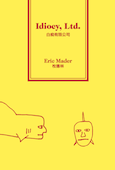You really need to read The Bleeding Edge, Thomas Pynchon’s latest. Especially if you’ve ever been a devotee of the writer in years past. You need to get your hands on a copy and start in right away.
This time the American master of paranoid inklings focuses his kaleidoscopic vision on New York in the months before and after September 2001, offering up a portrait of our 21st-century selves that is by turns rollicking, poignant, bleak. Bleeding Edge is both a great New York City novel and a far-reaching meditation on the attacks and what they’ve done to us.
Pynchon’s narrative follows disbarred fraud investigator Maxine Tarnow as she struggles to make sense of the financial shenanigans of a handful of Internet startups. The question nags: Are the shoddily disguised money transfers made to the Middle East in recent months by net guru Gabriel Ice in any way linked to the attacks? In the wreckage left by the dot-com bust, Ice is breaking up and buying damaged firms left and right, adding his recently acquired properties to a nascent net empire whose purposes are largely hidden. The money transfers, the secrecy, the unexplained need for Arabic speakers in Ice’s organization--it all begins to prod the otherwise levelheaded Maxine toward grim suspicions, which only deepen with the murder of one of the peripheral players.
Spy thriller, whodunnit, comedy of manners--the genre of this novel is hard to pin down. Thematically speaking, one might do worse than focus on the recently hot topic of the value, positive or negative, of irony in American culture. Following the attacks, as Maxine herself points out, conservatives argued the country had somehow been vulnerable to such large-scale evil because of our "wallowing in postmodern irony"--a cultural state, according to wingnut pundits, that made us unprepared to deal with real evil in the world. To go by the cast of characters in Bleeding Edge, Pynchon, unsurprisingly, is having none of it. Rather, it is the literal-minded among us, those who are too confident in their rightness, that bring about our worst disasters.
Irony always suggests distance, whether it be the distance between what we say and what we mean (verbal irony), the distance between our intentions and a contrary result (situational irony), or distance felt when a reader or an audience member is aware of an outcome characters don't foresee (dramatic irony). This last, of course, is everywhere felt in The Bleeding Edge. As we read, we know the disaster coming on September 11th; Pynchon's characters do not.
Of course ironies of all sorts are crucial to Pynchon’s vision, and the dramatic kind doesn't by any means upstage the usual brilliant array he employs. This is testimony to his art. As ironic trickster, Pynchon has only gotten more wily with years.
Maxine’s revulsion/infatuation for right-wing fixer Windust is ironic, as is the fatal tension between cyberspace and meatspace made so much of here. Also sadly ironic is the way the vaunted freedom of cyberspace will, as Maxine’s father Ernie presciently suggests, lead to a world without freedom, a world where one’s every contact and purchase and movement is monitored, the world we now find ourselves in. In the novel such situational irony reaches its peak when the deep-Web territory DeepArcher is finally invaded and colonized thanks to the drop in randomness in the numbers chain generated by the Princeton Global Consciousness Project, that randomness itself having been compromised by the collective human reaction to the 9/11 attacks. Upshot? The attackers, whoever they are, end up winning on both fronts.
Yes, I’m aware these last sentences can only be nonsense to anyone who hasn’t read the book. I don't want to suggest by them that this book is especially arcane or hard to follow if you aren’t a Web programmer or philosopher. It's true that readers with some knowledge of Internet programming and Web history will doubtless get the most kicks out of the book. But if little old me could tag along through Pynchon's few tech-heavy pages, knowing there were jokes I was missing but still generally keeping up, then anyone who’s read some tech press or kept a blog should be able to manage.
Besides, The Bleeding Edge isn’t just about the Internet and political paranoia. It’s also about adultery, parenting, ethnic squabbling, evil and redemption. And the ever-winking presence of pop culture in the narrative is a Pynchon trademark, this time becoming a hilarious writerly tic. Rather than allusions to Rilke, we get riffs on Journey lyrics, the Monica Lewinsky story, The Brady Bunch, and, of course, The Simpsons. How this book will ever go over in Hungarian or Chinese I can’t imagine. Though the existential questions are deep and global, the cheery detritus of Americana bobs everywhere on the surface.
The Bleeding Edge is infused with a strong lyricism that most would find a hard match for the pop-cultural antics. But Pynchon pulls it off. Light and darkness--city light at various hours of the day or the charged darkness one gazes into at the borders of cyberspace--are especially well served. If you finish the book, go back and reread its first and last pages. Pynchon has framed his one-year narrative with musings on morning light and the overnight blooming of pear trees outside his heroine’s front door.
The writer is now in his mid-seventies. That he writes so well about youth, the Internet boom, hip hop culture and computer games is itself a wonder. Pynchon is seemingly too curious a traveler not to get into everything at once.
A couple early reviewers have doubted that The Bleeding Edge can stand with Pynchon’s major works, one critic comparing it to his relatively flimsy 1990 novel Vineland. I beg to differ. In Bleeding Edge we have one of America’s great writers writing in top form about the defining event of our new millennium. It is not to be missed.
Check out The Bleeding Edge at Amazon.com.



